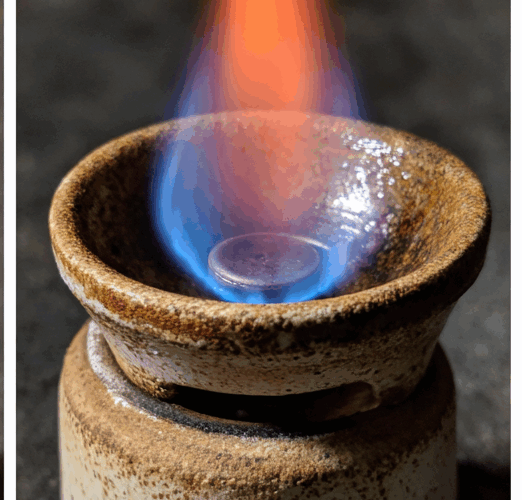Correct calculation of the burner power for the boiler is an important step that directly affects the efficiency of heating in your home. If the power is selected incorrectly, this can lead to many problems, such assystem overload, inefficient combustion of fuel, poor heatingand evendevice overheatingIn order to select the optimal burner and achieve maximum efficiency of the heating system, it is necessary to take into account several factors, such as the area of the room, the type of fuel and the characteristics of the boiler.
Burner power is a key feature that determines how much heat the system will produce.If the burner power is too low, the boiler will not be able to cope with heating the room, which will lead to insufficient heating.If the power is too high, this will mean unnecessary operation of the device, which will lead to unnecessary fuel costs, and will also increase the risk of breakdowns due to overheating. It is important that the burner power calculation is performed correctly, which will ensure not only comfortable heat in your home, but also resource savings.
What is burner power and how does it affect heating
Burner power— is a parameter that describes how much heat it can produce per unit of time. It depends on many factors, including the type of fuel used in the boiler and its technical characteristics. It is important to understand that the burner power directly affects how quickly the boiler can heat the room and maintain the required temperature.
Correct calculation of power is necessary in order to boiler efficiently, providing an even distribution of heat throughout the room. If the burner power is not selected correctly, the system will either overheat or not heat the space efficiently enough. This will affect the overall temperature in the house, as well as fuel and operating costs.
One of the most important points when choosing power is to understand that the burner power must be balanced with the size of the room and its thermal insulation. Incorrect calculation can lead to overpayments for fuel, since at high power the device will operate inefficiently, burning more fuel than necessary.
How to correctly calculate the required power for a boiler
To correctly calculate the burner power for your boiler, you need to take into account several important factors that affect heating. The main criterion for calculation is area of the premises, which needs to be heated. However, in addition to this, other aspects need to be taken into account, such as thermal insulation, boiler type, climate and even ceiling height.
To calculate the burner power, you can use the following steps:
- Calculate the area of the heated room. First of all, it is necessary to accurately calculate the area of the room to be heated. This is the main parameter on which the required power of the device depends.
- Consider the thermal insulation of the room. If your home or building is well insulated, less power will be required. Buildings with poor insulation will require more energy to maintain a comfortable temperature.
- Determine the required temperature. The temperature in the house may vary in different climate zones. Colder regions will require more power for heating.
- Consider the height of the ceilings. If you have high ceilings in your home, this will increase the volume of air that needs to be heated, and therefore increase the power requirement.
- Select fuel type. Different types of fuel (gas, liquid fuel, coal, etc.) require different burner power. For example, a gas boiler requires less power than a coal boiler.
For an accurate calculation, you can use formulas that take into account all these parameters, or contact specialists who will help you make calculations with maximum accuracy.
Factors Affecting the Choice of Burner Power
When calculating the burner power, it is necessary to take into account several factors that can significantly affect its efficiency and performance characteristics.
Type and characteristics of the premises — this is the most important parameter that directly affects the calculation of power. For example, houses with good thermal insulation, double-glazed windows and insulated walls require less burner power than houses that are poorly protected from the cold.Additionally, if your home has a lot of open spaces or high ceilings, this increases the volume of air that needs to be heated.
Climate conditions of the region also play a key role in calculating the required power. Cold and harsh climates will require more energy for heating than warm regions. If your home is located in an area with cold winters, you will need to choose a burner with a higher power so that it can maintain the desired temperature even in severe frosts.
Boiler type and its efficiency — is an equally important factor. For example, modern boilers with highly efficient heat exchangers may require less power than older models that do not use fuel as efficiently.Boilers with low efficiency require more fuel and, accordingly, more power to achieve the same temperature.
Fuel type also greatly affects the calculation. Gas boilers are generally more economical and require less power than boilers that run on coal or wood.However, boilers that run on liquid or solid fuels may require more power due to the peculiarities of the fuel combustion process.
The right combination of all these factors will help you accurately calculate the required burner power and choose the optimal solution for your home.
What are the most common mistakes when calculating burner power?
One of the most common mistakes when calculating power is underestimation of the impact of thermal insulation. People often underestimate the importance of good thermal insulation, which leads to the need to install a burner with excess power. This leads to additional fuel costs, as well as a decrease in the overall efficiency of the heating system.
Another mistake is underestimation of climate impact. In regions with cold climates, more powerful devices will be required than in areas with mild climates. Often, people use standard calculations without taking into account severe winters, which leads to insufficient heating of the premises.
It is also important to avoid choosing a burner with too high power. This will lead to unnecessary fuel costs, as well as frequent temperature fluctuations and system overload. Such errors often occur due to the lack of accurate calculations and incorrect recommendations from sellers interested in selling more expensive models.
What additional parameters are important to consider when installing a burner?
When installing a burner for a boiler, it is important to consider not only its power, but also several other parameters that can affect the long-term operation of the heating system.
Ventilation system – is necessary to ensure the correct fuel combustion process.Lack of good ventilation can lead to the accumulation of carbon monoxide in the room, which is extremely dangerous to health.Therefore, it is necessary to carefully consider the placement of the ventilation system during the installation process.
Regular maintenance also plays a key role in the long-term operation of the burner. Failure to perform regular cleaning and maintenance can reduce the efficiency of the burner and lead to equipment failure.
When choosing a burner, you should pay attention to guarantee and service period. This will allow you to prepare in advance for potential breakdowns and ensure stable operation of the device.
Correct calculation of the boiler burner power is an important step that not only ensures comfort in your home, but also allows you to significantly reduce heating costs, increase the durability of the equipment and minimize the risk of breakdowns. If the power is selected incorrectly, this can lead to excessive fuel consumption, system overload and even failure of the device. Therefore, it is very important to approach the choice of the burner with care, taking into account all the factors that can affect its operation.
When calculating the required power, be sure to take into account not only the area of the room, but also its thermal insulation, climatic conditions and the type of boiler. Use all available resources for calculation, including consultations with professionals, and always monitor the condition of the boiler and burner.
In the future, to ensure better efficiency and minimize costs, it is always recommended to use energy saving technologies and perform regular maintenance. Choosing a burner with the right power will ensure not only efficient heating, but also long-term trouble-free operation of your heating system.
For rooms with high ceilings, it is recommended to increase the burner power by 10-15%, since more energy will be required to heat a larger volume of air.
In this case, it is necessary to select a burner with greater power and carry out work to improve thermal insulation so as not to overload the heating system and not waste excess fuel.

